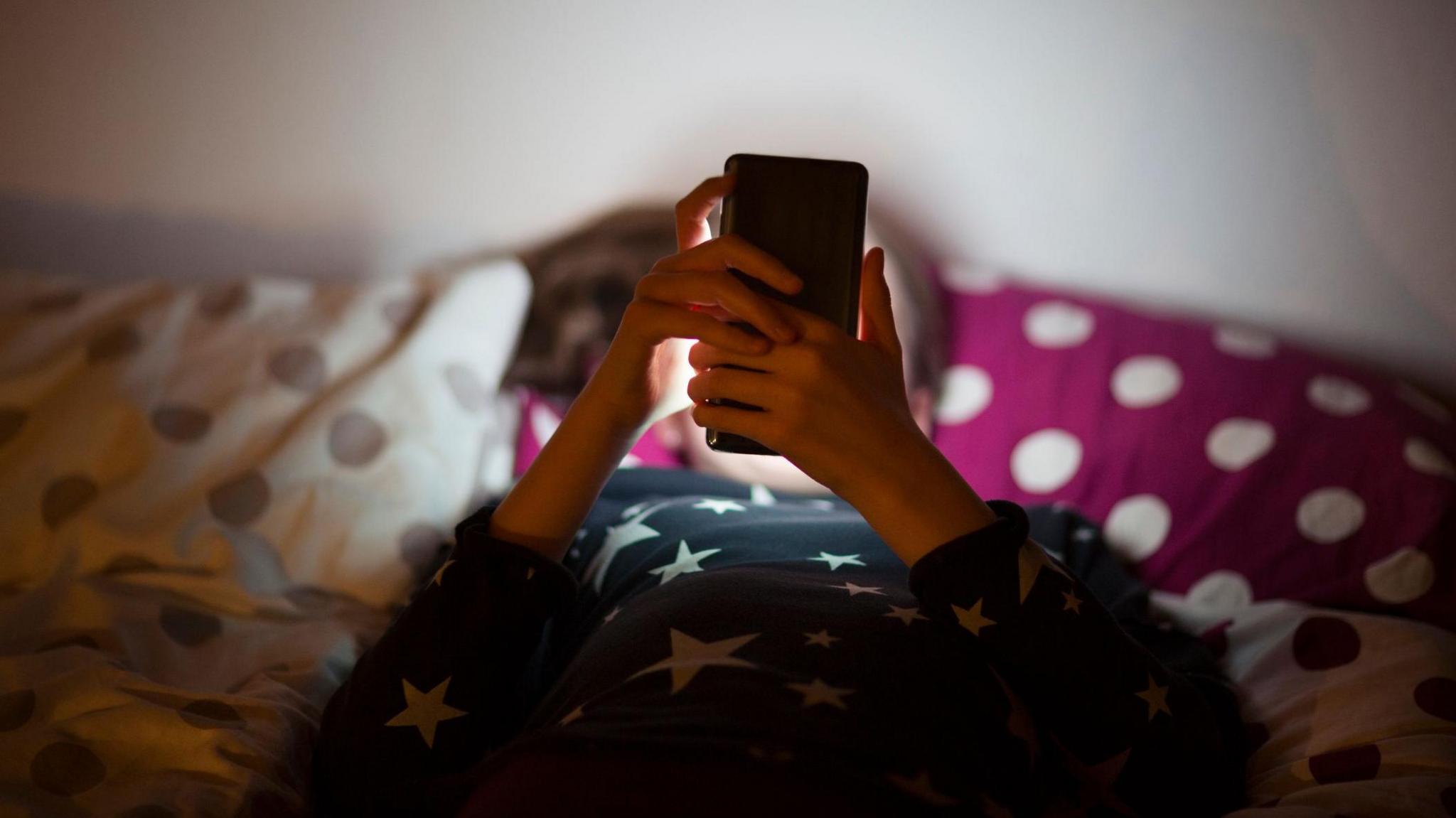Pupils must put phones in lockers, head says
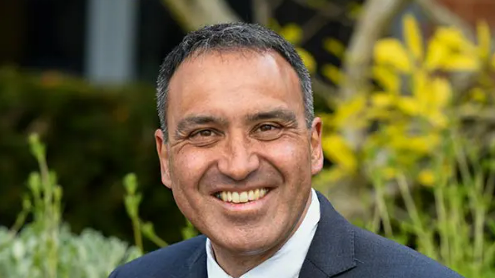
Philip Hurst, headteacher of Thomas Mills High School & Sixth Form, has received praise for his phone-free policy
- Published
A secondary school headteacher said he was tightening rules around mobile phone use to help students have a better relationship with their devices.
Philip Hurst is headteacher of Thomas Mills High School, external in Framlingham, Suffolk.
The school has tweaked its mobile phone policy so that from September, students in years seven to 11 will have to place them in lockers for the day rather than keeping them in bags or pockets.
Mr Hurst said the move would reduce any temptations to use the phones.
He explained to BBC Radio Suffolk his students were already "really good" with the current policy.
But he felt in society generally we needed to reconsider our relationship with mobile phones.
"For me it's not just about attainment and concentration I think it's also about wellbeing," he said.
"We must develop the community that we want and we want people involved, engaged and taking part in things.
"For schools we've got to have more clubs, more activities, more trips so that we engage children positively."
Mr Hurst said tougher punishments were being considered if phones were caught being used.
It could potentially see parents having to come into school to collect phones if their child was caught using it.
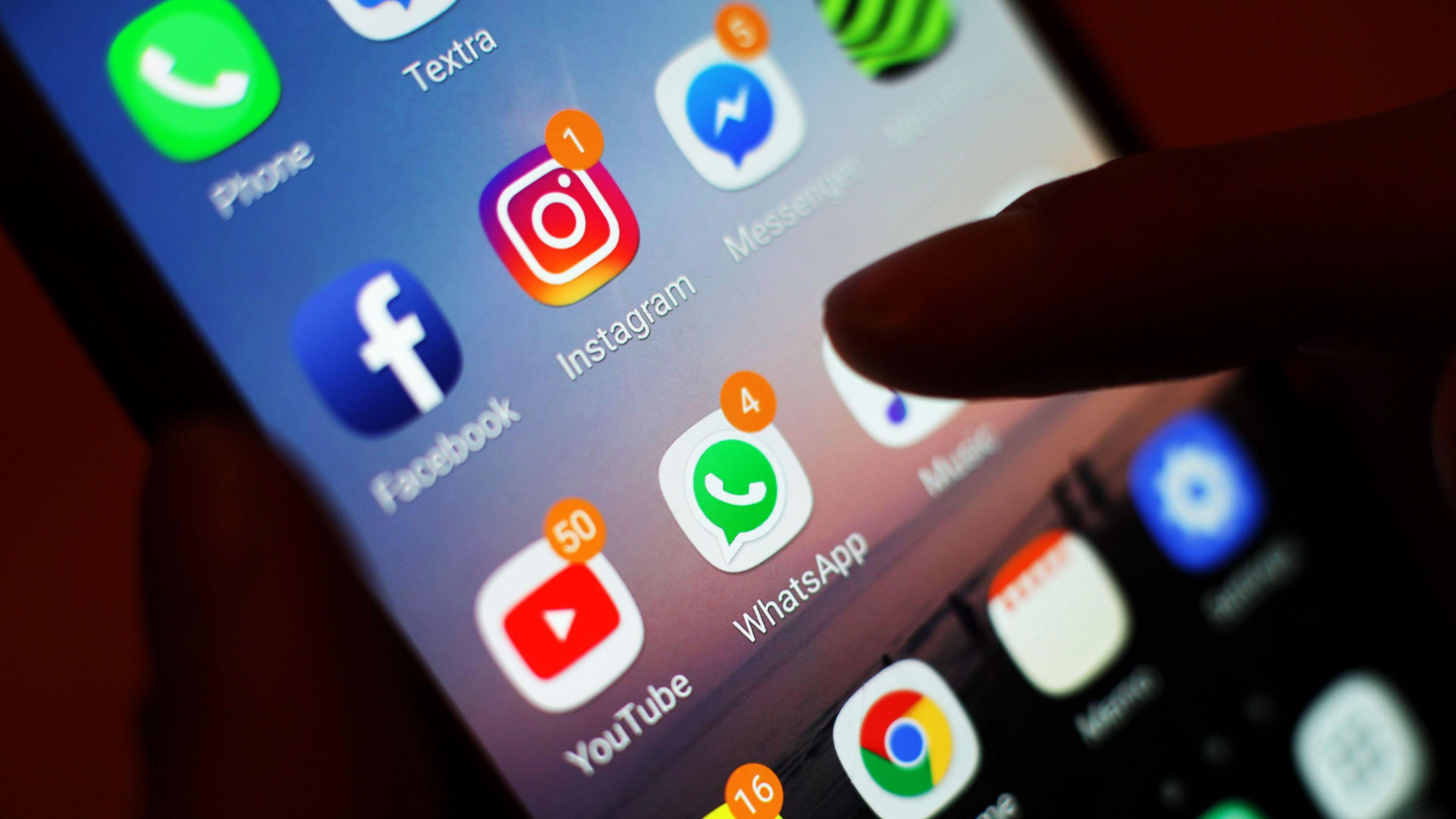
Daisy Greenwell, co-founder of the Smartphone Free Childhood, external campaign, welcomed the decision.
She said the policy was a "great step to allow children to have that time at school to socialise, study and to focus".
"We all know how hard it is to focus when you've got your phone in your bag - it's virtually impossible," she continued.
"We need to give children the space to get on with what they are supposed to be doing in school."
Ms Greenwell started the campaign after noticing the pressure to get her nine-year-old daughter a smartphone.
"No parent wants to leave their child feeling socially isolated at a really crucial time in their development," she explained.
"But at the same time you don't want to give them something that's going to cause a lot of problems."
Ms Greenwell said it was extremely helpful when other parents and schools agreed to ban smartphones to ease the pressure parents felt.
Smartphone Free Childhood offers parents advice on how to deal with the pressure and has created WhatsApp communities for parents to share their thoughts.
Follow Suffolk news on Facebook, external, Instagram, external and X, external. Got a story? Email eastofenglandnews@bbc.co.uk, external or WhatsApp us on 0800 169 1830
Related topics
- Published12 July 2024
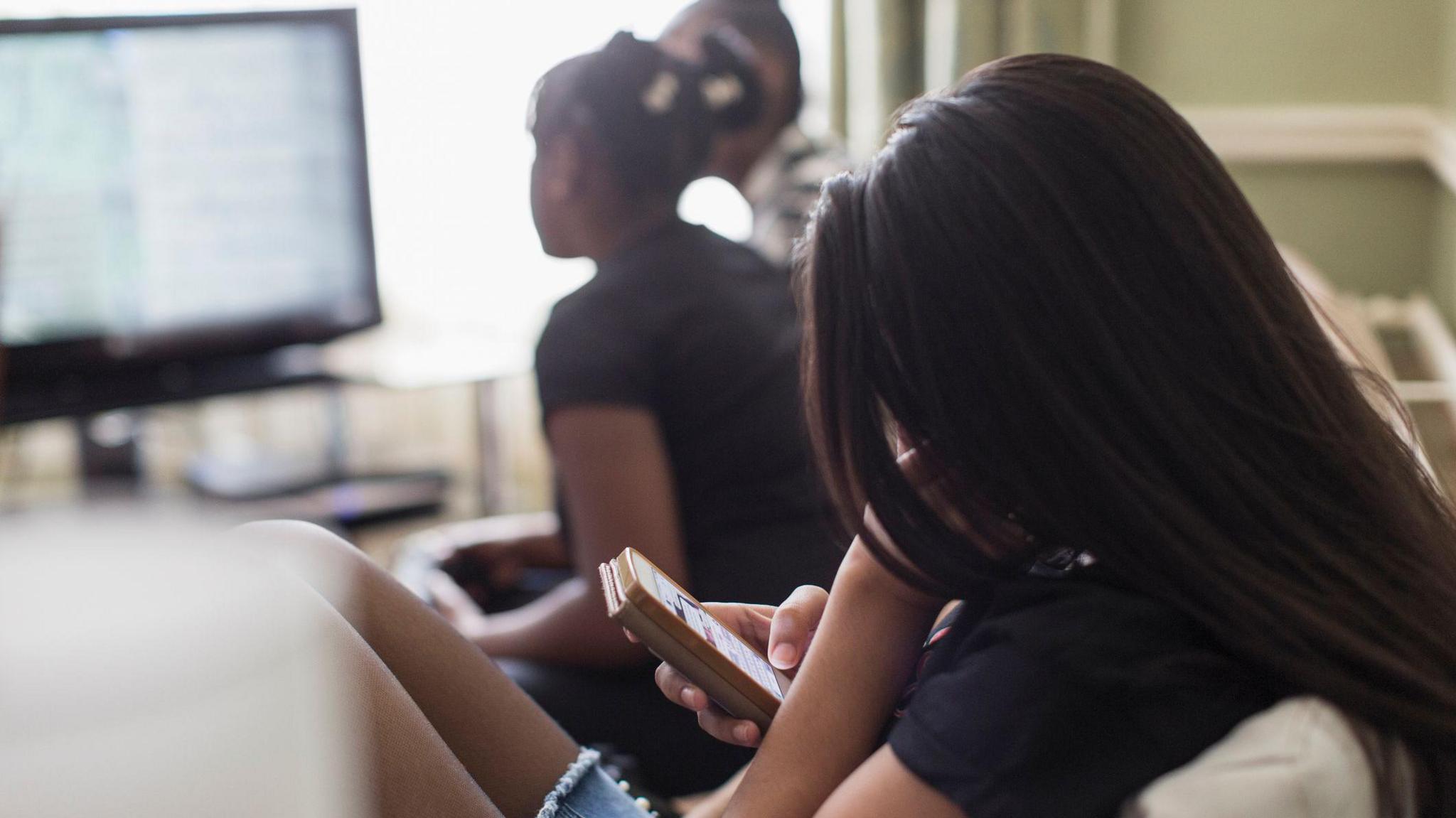
- Published19 April 2024
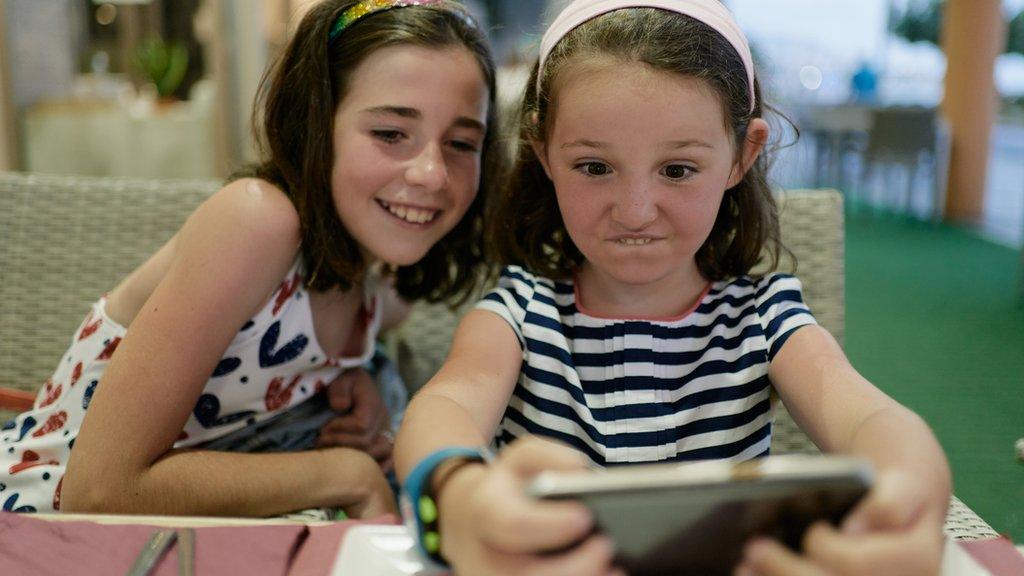
- Published8 February 2024
